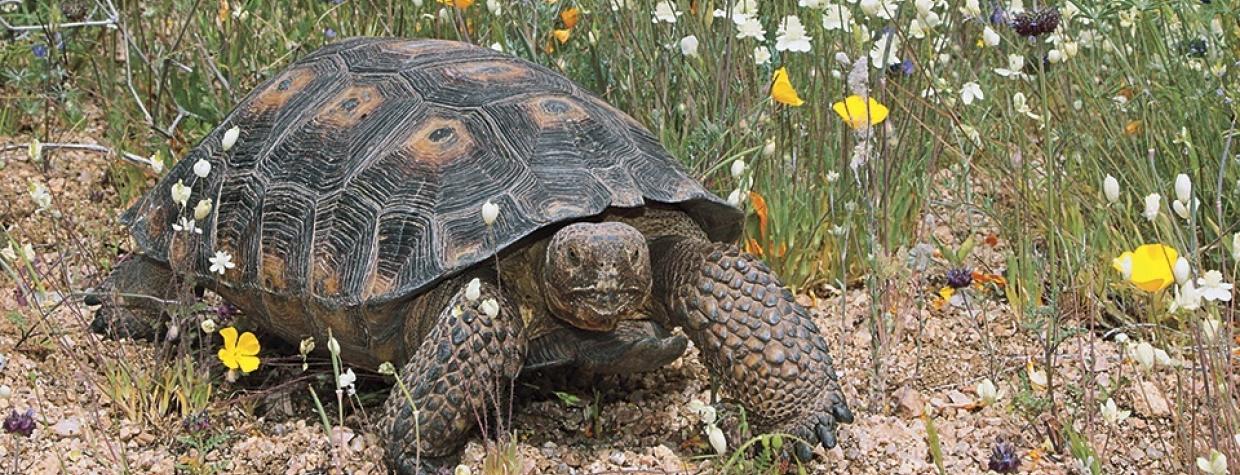If misters are proof of anything, it's that it takes a little moisture in the air to get Arizonans to even consider moving around in the summer. Desert tortoises are equally stubborn. These slow-moving desert dwellers tend to stay in their cool burrows until a rainstorm passes through.
Sometimes, they avoid the summer altogether, extending their typical November to March hibernation. But even the average hibernation schedule means a desert tortoise sleeps half of its life, which could be the secret to its long lifespan, says Cristina Jones, the Turtles Project Coordinator at the Arizona Game and Fish Department. Many desert tortoises live up to 60 years, and Jones has heard of pet tortoises being passed down through a family for more than 100 years.
"Anything that sleeps that much is going to have a long life," Jones says.
That said, even when they're active, desert tortoises don't move around a lot. According to Jones, they typically stay within 3 miles of where they hatch, plodding slowly under high-domed shells covered in circular ridges.
No matter how far they go (or don't go), there's one place desert tortoises won't be found: lakes. Unlike most turtles in the United States, Jones says, desert tortoises aren't aquatic. They might drink from or submerge in a shallow, post-rain puddle, but that's about it. "They're more soakers than swimmers," she says. Desert tortoises will drink and store their water, while eating desert plants, grasses and fruit.
Catching a glimpse in the wild is pretty common. "If you see saguaros mixed with paloverde and mesquite trees, especially if there are big boulders, you're in quality desert tortoise territory," Jones says, adding that most mountain ranges surrounding Phoenix also house the tortoises. In the Mojave Desert they're found in flatter basins, while in the Sonoran Desert they're found along rocky slopes and bajadas.
Despite their prevalence, hikers are cautioned against scooping them up and taking them home. The only legal way to become a desert tortoise owner is through adoption, which is open to those living in select Arizona cities. (For more information, contact the Arizona Game and Fish Department.) Jones adds that desert tortoises are solitary animals that don't need companion pets. And if you adopt one, of course, be prepared to get the cold shoulder — unless there's a good storm brewing.

